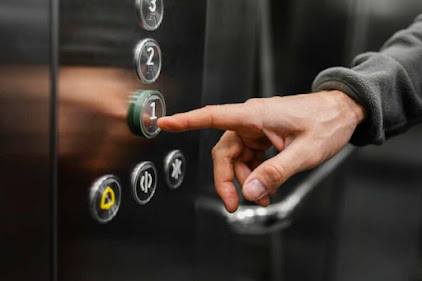Revolutionizing Spaces: The Art and Science of Lift Design & Installation
In the intricate dance of urban architecture, one element stands tall as both a necessity and a marvel of engineering: the lift. Far beyond mere vertical transport, lifts are the beating heart of high-rise buildings, connecting floors, people, and possibilities. The Design and Installation of lifts represent a fusion of artistry and technical prowess, shaping not only the physical landscape but also the flow of human interaction within it.
Elevating Experiences: The Essence of Lift Design
At its core, lift design transcends mere functionality. It's
about crafting an experience that seamlessly blends form and function,
efficiency and aesthetics. Every detail, from the sleekness of the cabin to the
efficiency of the controls, contributes to the overall ambiance and usability.
Designers delve deep into user experience, considering factors
like traffic patterns, wait times, and accessibility. They strive to create
spaces that feel intuitive and inviting, where every journey is smooth and
every arrival is effortless.
But lift design isn't just about the passengers—it's also about
the building itself. Lift shafts must harmonize with the architectural vision,
seamlessly integrating into the structure while maximizing space and
efficiency. This requires a delicate balance of innovation and integration,
where cutting-edge technology meets timeless design principles.
The Precision of Installation: Engineering the Vertical Path
Behind every lift's smooth operation lies a meticulous
installation process. Installing a lift isn't merely a matter of placing
components in a shaft—it's a symphony of precision engineering and exacting
standards.
Installation begins long before the lift arrives on-site, with
careful planning and coordination between architects, engineers, and
construction teams. Every aspect, from the placement of the shaft to the
routing of power and data cables, must be meticulously mapped out to ensure
seamless integration into the building's structure.
Once on-site, installation crews work with surgical precision,
carefully assembling and calibrating each component to exacting specifications.
Every bolt tightened, every wire connected is a step towards creating a
vertical pathway that's as safe as it is efficient.
But installation isn't just about mechanics—it's also about
safety. Lifts are subject to rigorous safety standards, with every aspect of
their design and installation scrutinized to minimize the risk of accidents.
From redundant safety systems to fail-safe mechanisms, every precaution is
taken to ensure the well-being of passengers and technicians alike.
The Future of Vertical Mobility: Innovations on the Horizon
As technology continues to evolve, so too does the world of lift
design and installation. From advanced materials that promise greater
efficiency and sustainability to smart systems that anticipate passenger needs,
the future holds boundless possibilities for vertical mobility.
One exciting development is the rise of destination control
systems, which use algorithms to optimize lift operations based on passenger
traffic patterns. By intelligently routing cabins and minimizing wait times,
these systems promise to revolutionize the passenger experience, making
vertical travel faster, smoother, and more efficient.
Another area of innovation is in sustainable design. With
growing concerns about energy consumption and environmental impact, designers
are exploring ways to make lifts more eco-friendly. This includes everything from
energy-efficient motors to regenerative braking systems that capture and reuse
energy during descent.
But perhaps the most transformative innovations are those that
lie beyond the realm of technology. As our cities grow ever denser and more
interconnected, the future of lift design may lie not just in transporting
people vertically, but in fostering connections horizontally. Imagine lifts
that serve as communal spaces, fostering serendipitous encounters and sparking
new ideas—a vertical agora where the boundaries between floors blur and the
possibilities are endless.
In the end, Lift
Design and Installation are about more than just moving people from one floor to
another. They're about creating spaces that inspire, connect, and elevate the
human experience. And in a world where the sky's the limit, that's a journey
worth taking.




Comments
Post a Comment